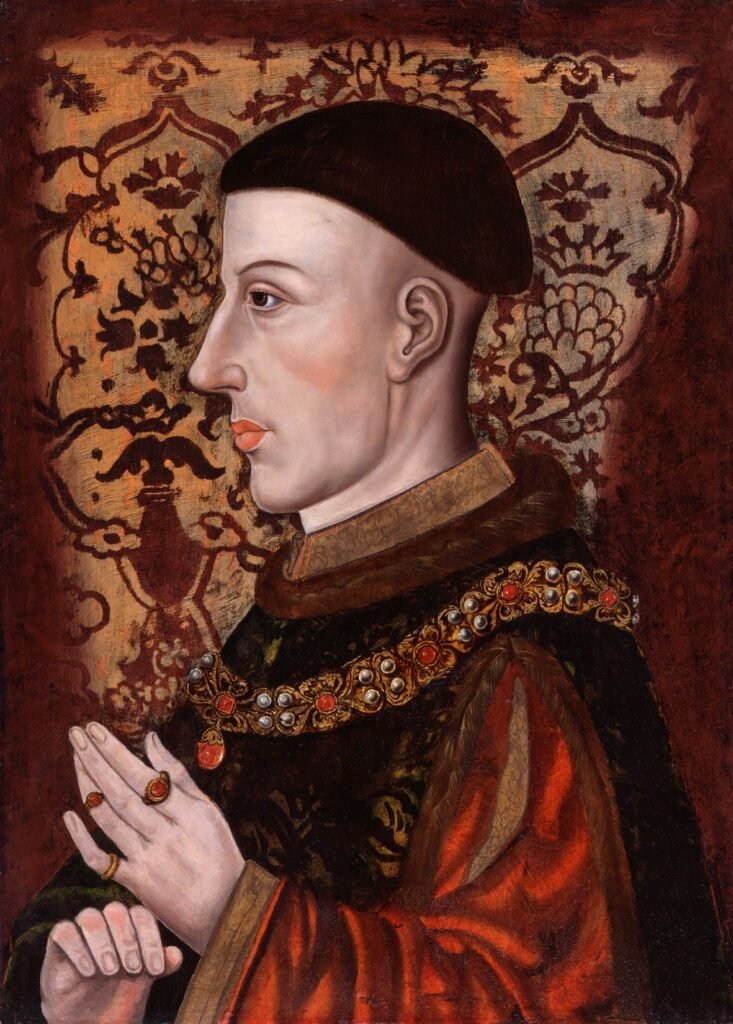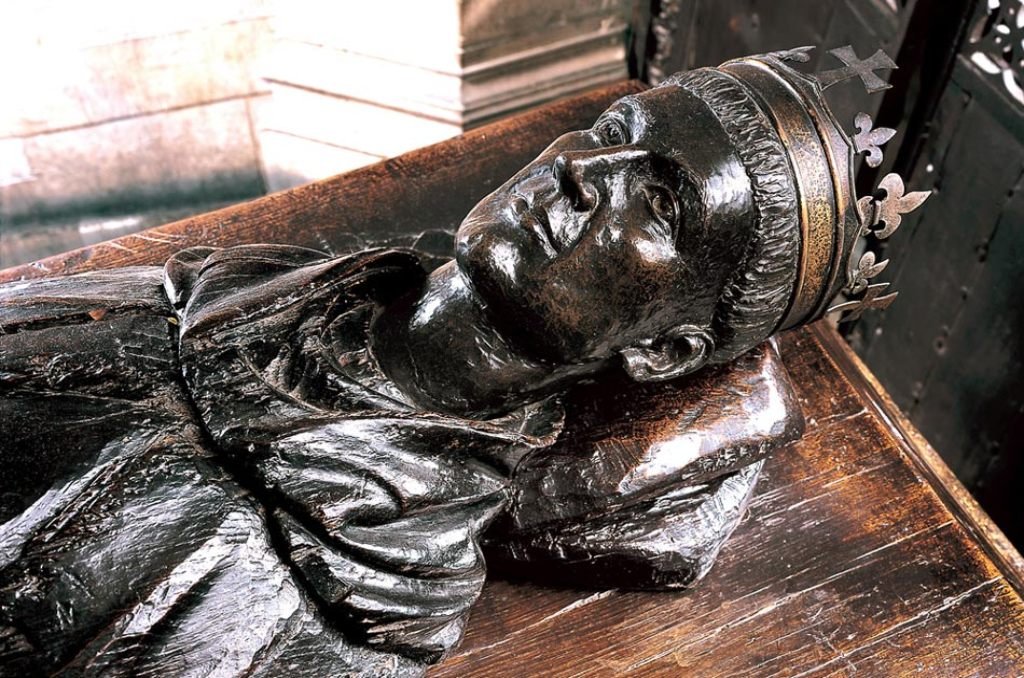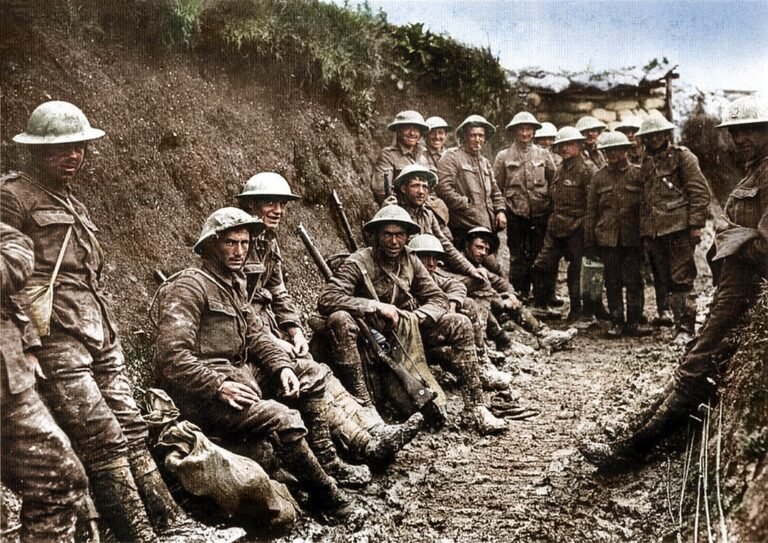Henry V, the iconic King of England, is a fascinating historical figure. Known for his bravery and leadership, he left a lasting impact on history.
Henry V ruled during a time of great conflict and change. His reign saw the famous Battle of Agincourt, where his strategic genius shone. Born in 1386, Henry ascended to the throne in 1413, marking the beginning of a transformative era.
His military campaigns and efforts to unite England and France are legendary. Understanding his life and achievements gives us a glimpse into medieval Europe. This blog delves into the life of Henry V, exploring his early years, reign, and lasting legacy. Join us as we uncover the fascinating story of this remarkable king.
Early Life And Ascension
Henry V, one of England’s greatest kings, had a remarkable journey to the throne. His early life shaped his character, and his ascension marked a pivotal moment in English history. Let’s explore his birth, family background, and rise to power.
Birth And Family Background
Henry V was born on September 16, 1386, in Monmouth Castle, Wales. His father was Henry of Bolingbroke, later King Henry IV. His mother was Mary de Bohun, a noblewoman with a strong lineage. Henry was the eldest of six children. His upbringing was privileged, yet strict. His education included languages, literature, and military training. This foundation prepared him for future challenges.
Rise To The Throne
Henry’s path to the throne was not straightforward. His father, Henry IV, faced many rebellions. Young Henry participated in these battles, gaining experience. By 1413, Henry IV’s health declined. Henry V, as the Prince of Wales, was ready. On March 20, 1413, Henry V became king. His coronation took place at Westminster Abbey. He was just 26 years old. His reign began with a focus on unity and strength. Henry V quickly proved to be a capable leader.

Credit: en.wikipedia.org
Military Strategies And Campaigns
Henry V of England is celebrated for his military brilliance. His campaigns in France during the Hundred Years’ War are legendary. His strategies were a mix of traditional and innovative methods. They changed the course of battles and brought him great victories. Let’s dive into his military strategies and campaigns.
Innovative Tactics
Henry V used clever tactics to outsmart his enemies. He was known for his use of the longbow. This weapon gave his army a significant advantage. It allowed them to attack from a distance. His troops could strike hard before the enemy got close. He also used the terrain to his benefit. By choosing favorable ground, he limited the enemy’s mobility. His approach was both smart and effective.
Major Battles And Victories
The Battle of Agincourt is one of Henry V’s greatest triumphs. Despite being outnumbered, his forces won a decisive victory. His strategic use of archers played a key role. The muddy battlefield slowed the French troops. This made them easy targets for English archers. Another significant battle was the Siege of Harfleur. Henry’s siege tactics forced the town to surrender. His victories weren’t just about winning battles. They were about strategic planning and execution.
The Battle Of Agincourt
The Battle of Agincourt stands as a defining moment in history. This clash between England and France revealed the power of strategic warfare. King Henry V led his troops to victory against overwhelming odds. His leadership and tactics turned the tide in favor of the English.
Preparation And Strategy
Henry V was meticulous in his preparations for battle. He ensured his troops were well-equipped and trained. His strategy relied on the use of longbows. This weapon gave the English a significant advantage. The placement of troops was carefully planned. Henry positioned his men in a narrow field. This limited the French cavalry’s effectiveness. Muddy terrain added to the French challenges. The English archers unleashed a hail of arrows. This decimated the French forces before they could engage.
Impact And Aftermath
The victory at Agincourt had profound effects. It boosted English morale and strengthened Henry’s reign. This battle showcased the effectiveness of tactical planning. It also highlighted the importance of leadership in warfare. The French suffered heavy losses. Their defeat led to a shift in power dynamics. This victory paved the way for English claims to French territories. The legacy of Agincourt influenced future military strategies. It remains a significant event in the history of England.
Diplomacy And Governance
Henry V’s reign is often remembered for his military successes, but his era was also marked by significant strides in diplomacy and governance. Balancing international relations and domestic policies required skillful negotiation and strategic thinking. How did Henry V manage to navigate these complex waters? Let’s dive into the two key areas of his rule: his relations with France and his domestic policies.
Relations With France
Henry V’s relationship with France was both contentious and diplomatic. Most famously, he led England during the Hundred Years’ War, achieving a significant victory at the Battle of Agincourt. This victory was not just a military triumph but also a diplomatic tool that strengthened his position in negotiations.
Henry sought to legitimize his claim to the French throne. This ambition was formalized through the Treaty of Troyes, where he was declared heir to the French kingdom. It was a masterstroke of diplomacy, as he married Catherine of Valois, further solidifying his claims.
Negotiating such treaties required more than just battlefield prowess. It involved understanding the political landscape of France and leveraging alliances. Have you ever wondered how modern leaders might learn from such historical diplomatic triumphs?
Domestic Policies
Domestically, Henry V focused on strengthening his rule through effective governance. He streamlined administration and ensured loyalty by appointing trusted nobles to key positions. This not only secured his power base but also enhanced efficiency in government operations.
He was attentive to the needs of his people, addressing grievances to maintain peace. This approach reduced internal conflicts and allowed him to focus on external challenges. Imagine if today’s leaders took a similar approach to governance, how different might our world be?
Henry’s policies also extended to finance. He managed the kingdom’s resources judiciously to fund his campaigns. This fiscal responsibility ensured that he could sustain his military efforts without overburdening his subjects.
What can you learn from Henry V’s governance? His balanced approach to diplomacy and domestic policies remains a lesson in strategic leadership. Next time you navigate a complex situation, consider how a blend of diplomacy and effective management could be your key to success.
Cultural And Religious Influence
Henry V’s reign wasn’t just about battles and conquests; it was a period marked by significant cultural and religious shifts. These changes were not merely imposed but embraced by the people, shaping the society in profound ways. You might wonder, how do these influences resonate with us today?
Patronage Of The Arts
Henry V understood the power of art in shaping public opinion and national identity. He supported poets and musicians, fostering a vibrant cultural scene. Imagine walking through a bustling marketplace where minstrels sing tales of valor and loyalty, echoing the spirit of the times.
This patronage wasn’t limited to entertainment. It was about inspiring pride and unity among his subjects. Have you ever felt a surge of emotion when listening to a song or reading a poem? That was Henry’s aim—to stir hearts and minds, creating a shared cultural heritage.
Religious Reforms
Henry V’s religious reforms were pivotal. He sought to strengthen the church, ensuring it played a central role in daily life. These reforms were not just political moves but deeply personal convictions that shaped societal values.
His efforts led to a more organized religious practice, impacting everything from education to community gatherings. Think about how religion influences your life today, perhaps in ways you don’t immediately notice. Henry’s vision was to make faith a cornerstone of society, guiding ethics and morals.
But it wasn’t just about rules and doctrines. It was about fostering a community spirit, where faith brought people together. Can you see parallels in your own community, where shared beliefs create bonds?
Henry V’s cultural and religious influence is a testament to the power of leadership in shaping society. By understanding these aspects, you gain insight into the enduring legacy of his reign. What lessons can you take from his strategies to influence change in your own world?
Legacy In Literature And Drama
Shakespeare’s “Henry V” highlights leadership and courage during the Battle of Agincourt. The play captures King Henry’s journey from a young ruler to a respected leader. Its themes of honor and power resonate across generations.
Henry V’s impact on literature and drama is profound and enduring. His story transcends the historical events of his reign, becoming a rich source of inspiration for writers and playwrights. This legacy invites us to ponder how historical figures continue to shape our cultural narratives today.
Shakespeare’s Henry V
Shakespeare’s play “Henry V” stands as a cornerstone in the canon of English literature. This work not only dramatizes the life of the king but also delves into themes of leadership, power, and morality. Shakespeare presents Henry as a complex character, balancing his youthful past with his responsibilities as a ruler.
The play is celebrated for its stirring speeches, notably the “St. Crispin’s Day” speech, which still echoes in popular culture. It captures the essence of camaraderie and resolve. Have you ever found yourself inspired by a story or speech that urged you to face challenges head-on?
Portrayal In Other Works
Beyond Shakespeare, Henry V appears in numerous other literary and dramatic works. Each portrayal offers a unique perspective on his character and reign. From novels to films, Henry’s figure evolves, adapting to the values and concerns of different eras.
For instance, historical novels might focus on his military conquests, while modern films explore his personal struggles. These varied interpretations reveal how each generation reimagines Henry’s legacy. What does this tell us about our own values and how we interpret history?
The enduring fascination with Henry V challenges us to consider the narratives we create about leadership and legacy. How do these stories shape our understanding of history and our expectations for the future?
Controversies And Critiques
Henry V has always been a figure of intrigue and debate. While celebrated for his military prowess and leadership, his reign was not without controversies. Critics often question his decisions and leadership style, leading to heated debates and historical re-evaluations. This section will delve into these aspects, offering you insights into the complexities surrounding one of England’s most famous kings.
Debates On Leadership Style
Henry V’s leadership style has been both praised and criticized. Some admire his strategic brilliance and ability to inspire his troops at battles like Agincourt. You might find it fascinating how a king could rally his men with such fervor, yet others argue he was too ruthless.
Critics point to his harsh treatment of enemies and uncompromising nature as potential flaws. This brings up a thought-provoking question: Is effective leadership defined by results, or by the methods used to achieve them?
Imagine leading a team or group. Would you prioritize the end goal or the journey to get there? Henry V’s choices offer a unique lens through which to evaluate your own leadership style.
Historical Re-evaluations
Over time, historians have re-evaluated Henry V’s reign, offering new perspectives and critiques. Initially viewed as a heroic figure, modern historians have uncovered complexities in his decisions and policies.
Some historical accounts reveal his diplomatic strategies were as important as his military campaigns. This could change the way you perceive his legacy. It’s intriguing how newer studies can reshape our understanding of historical figures.
Consider how history is often written by the victors. Could there be hidden truths about Henry V waiting to be discovered? Your curiosity might lead you to explore different sources and narratives, enriching your perspective on historical events.
Enduring Impact
Henry V remains one of the most influential monarchs in English history. His reign was marked by military success and strong leadership. He was known for uniting England and leading it to victory in the Battle of Agincourt. These achievements have left a lasting impact on the monarchy and society.
Influence On Monarchy
Henry V’s leadership shaped the future of English royalty. He demonstrated the power of a strong, decisive monarch. His victories strengthened the crown’s influence over the nobility. This created a more centralized form of governance. His legacy showed that a king could unite the nation and lead by example.
His reign set a precedent for future monarchs. They learned the importance of military strategy and diplomacy. His ability to inspire his troops became a benchmark for leadership. Monarchs after him often looked to his reign for guidance.
Relevance Today
The lessons from Henry V’s time still resonate in modern leadership. His emphasis on unity and strategy is relevant to today’s leaders. Many leaders strive to balance strength and diplomacy, just like Henry V. His reign offers insights into navigating complex political landscapes.
His story captivates those interested in history and leadership. His ability to overcome adversity inspires many. Henry V’s impact is studied in schools and universities worldwide. His legacy continues to influence discussions on effective governance.

Credit: www.npg.org.uk
FAQs
What Was Henry V Famous For?
Henry V was famous for his victory at the Battle of Agincourt during the Hundred Years’ War. His leadership and strategic prowess solidified his reputation as a legendary English king. His achievements also inspired Shakespeare’s play “Henry V,” celebrating his heroic legacy.
Did Henry V Love Catherine Of Valois?
Historical records suggest Henry V married Catherine of Valois for political reasons. Their love remains uncertain. Catherine was a French princess, enhancing diplomatic ties with France. Though Henry admired her, true love is speculative. Their relationship was brief, ending with Henry’s death in 1422.
Why Did Henry V Execute His Cousin?
Henry V executed his cousin, Richard of Conisburgh, for his involvement in the Southampton Plot. The conspiracy aimed to assassinate Henry before his campaign in France. Richard’s actions were considered treasonous, leading to his execution in 1415, which reinforced Henry’s authority and deterred potential rebellions.
What Caused Henry V’s Death?
Henry V died of dysentery in 1422. He contracted the illness during the Siege of Meaux in France.
Conclusion
Henry V remains a captivating historical figure. His life and reign offer valuable lessons. Leadership, courage, and strategy define his legacy. History enthusiasts find his story inspiring and intriguing. Shakespeare’s portrayal adds depth to his persona. His achievements continue to influence modern leadership thoughts.
Studying Henry V helps us understand medieval history better. His journey from prince to king is remarkable. Dive into his tale for timeless inspiration.








